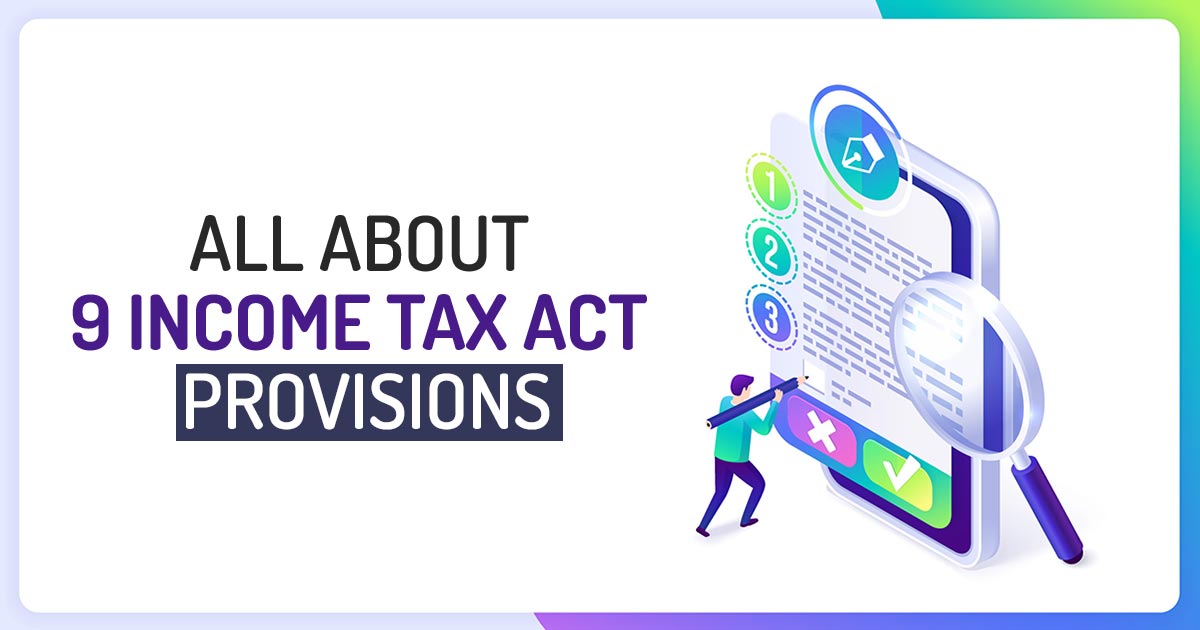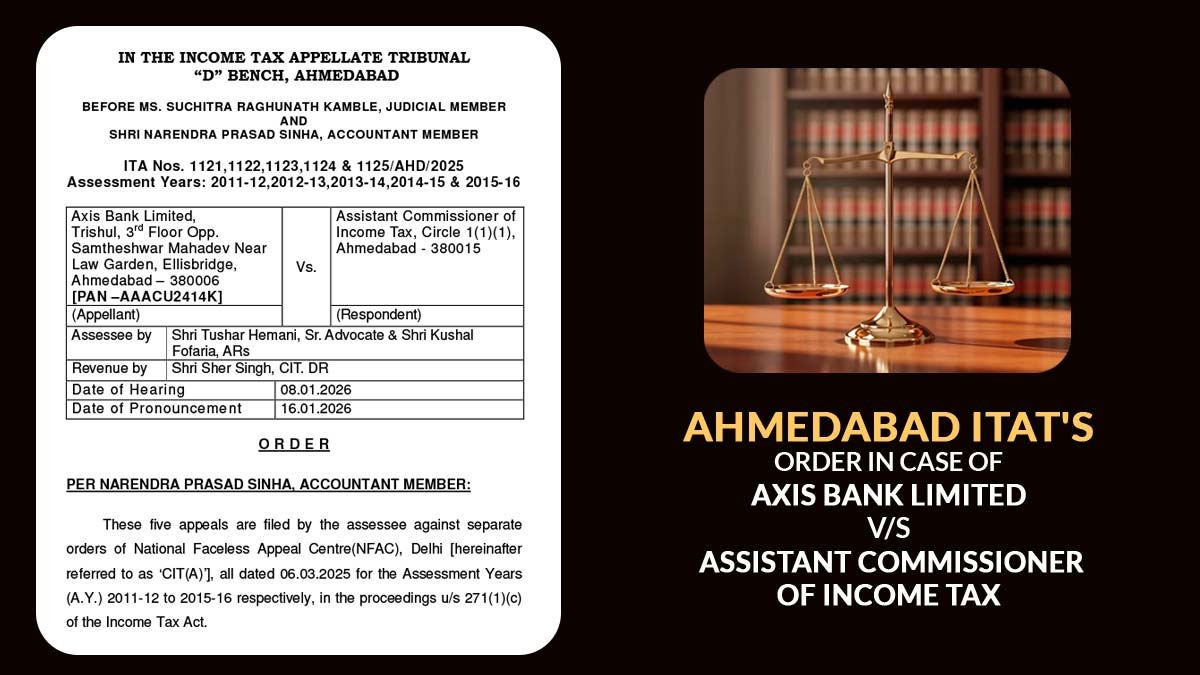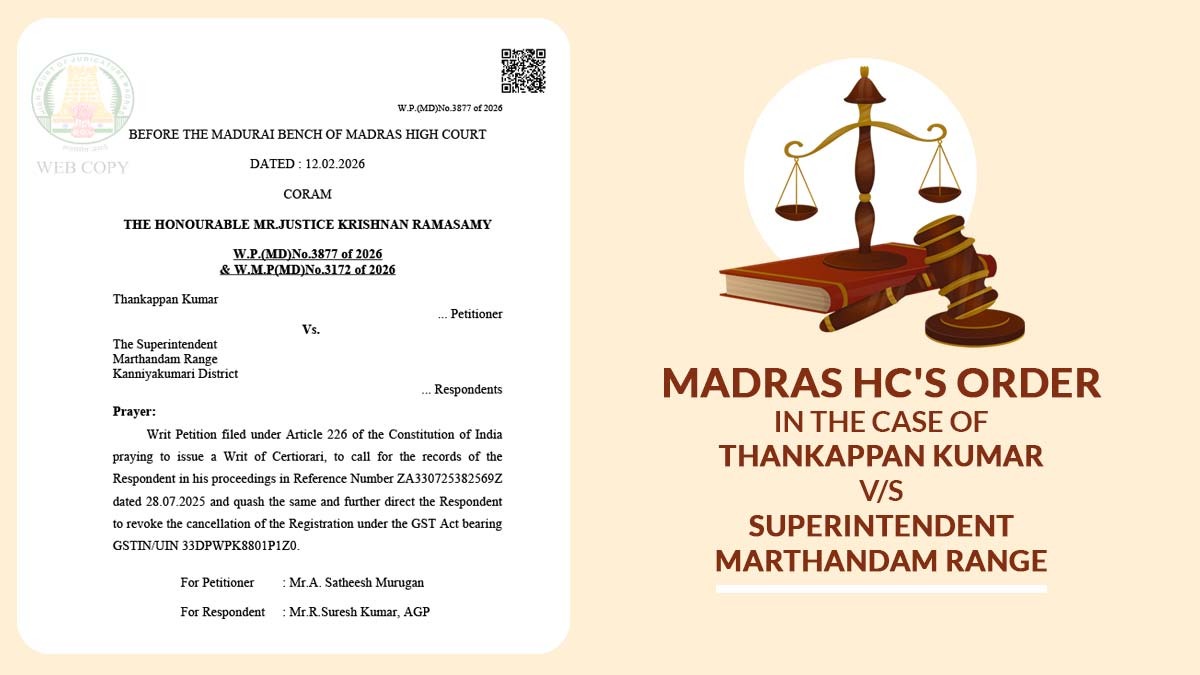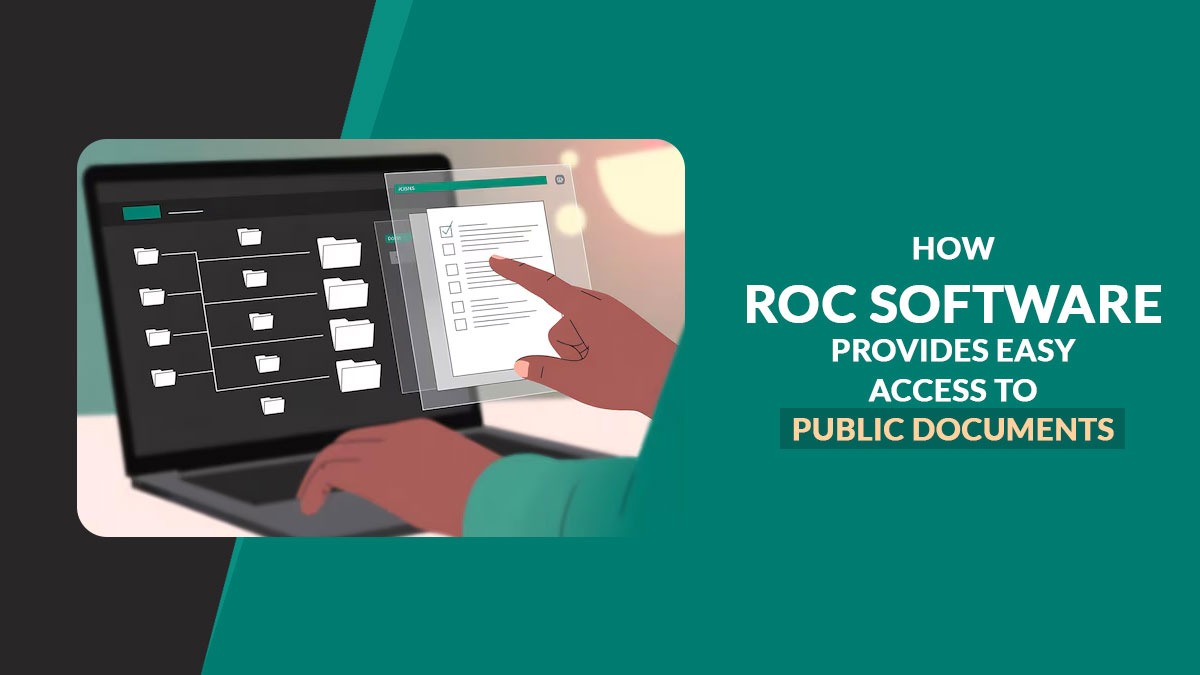
“The law of income tax is enriching. As intriguing as it is, the more one learns, the more he seeks to learn”
In the former articles, we discussed the income tax law and now wrote an article concerning the ancillary provisions as included in the Income Tax Act of 1961 itself. The same act consists of different provisions, and most of the tax community is very well known about the actual part of the same provision.
But the law is so expanded and developed that there are various ancillary or incidental provisions that many of us, for the urge of development of knowledge of tax laws, might require to reveal. The article shows the incidental provisions that are necessary for the development of an all-around knowledge and familiarity with tax laws.
Appeal As Per Section 260A to the HC & Section 261 to SC
- Under section 260A(1) of the Act, an appeal lies to the High Court concerning the order passed in appeal by the appellate tribunal and only on the substantial question of law. Thus, in the cases in which the case is remanded to ITAT by the High Court, it should be mentioned that the petition will come before the High Court after ITAT has passed the order deciding in favour of or concerning the taxpayer.
- The provisions of the Code of Civil Procedure, 1908, relating to appeals to the High Court (Section 260A(7) shall apply when appeals are made to the High Court. It clears the doubts that one might pose as to what is mentioned process to the High Court in the income tax appeal proceedings.
- The petition must come before the Supreme Court under Section 261 from any judgment delivered by the High Court in an appeal against any order passed under Section 254 when the High Court certifies the same to be effective for an appeal to the Supreme Court. The certificate is hence essential, and the taxpayer prefers a special leave petition(SLP) if it wishes to challenge the ruling of the High Court.
Instructions to Subordinate Authorities
- A. CBDT furnishes the Circulars under Section 119(1) of the Act, which are in the form of rules to subordinate authorities.
- B. Under Section 119(2)(a), the CBDT can cancel the effect of various provisions, including Section 139, 143, 144, 147, etc.
- C. Under Section 119(2)(b), the CBDT might prevent the real hardships via a general or special order authorising any income-tax authority to admit an application or avail any exemption, deduction, refund, or any additional relief under the Act beyond the expiry of the period specified by the Act for making these claims.
Annual Information and Financial Transaction Statement
- A. via Finance Act, 2020 w.e.f 1-6-2020, the marginal note Annual information statement was inserted, and beneath Section 285BB of the Act, the same is the income tax authority that will upload in the enrolled account of the taxpayer an annual information statement having these data as may be prescribed. The relevant Rule is Rule 114-I of the Income Tax Rules, 1962. Thus, all information related to the payment of taxes, tax deducted or collected at source, pending or completed proceedings shall be furnished in a form called Form No. 26AS.
- B. Under Section 285BA of the Act, an inter alia assessee is required to file a statement of financial transaction to the income tax authority. The rule related to it and its form is Rule 114E and Form 61A. Certain transactions are to be notified as composed in the said form.
Appeal Filing or Application for Reference by the IT Officer
The circulars provided by the CBDT for the tax effect are furnished under section 268A of the Act. Hence, these fiscal limits are mentioned to show the plea via revenue to ITAT, High Court, and Supreme Court, and what is ‘tax effect’ is mentioned in the circulars, and the power source to provide these circulars is mentioned in the mentioned section.
Assessing Tax Authorities
Every tax professional and even layman has learned about the term ‘Assessing Officer’. It is described beneath Section 2(7A). The report was inserted by the Direct Tax Laws(Amendment) Act, 1987 w.e.f 1-4-1988. But did you know that the Commissioner of Income Tax is also one of the income tax authorities under Section 116, who is an assessing officer under the act.
Income Taxability
The taxability of the income of the individual relied on the residence of the specified person as per DTAAs. An individual might be a resident in India, not ordinarily resident, or a non-resident and will need to furnish the tax as per that. Section 6 deals with the residents in India. The income tax liability in India shall not depend on the citizenship of the individual. The individual might be an individual, HUF, company, firm, etc, and is described beneath Section 2(31) of the Act.
PAN Card (Permanent Account Number)
Many people know about the permanent account number(PAN). However, various people don’t know about its source or origin. A PAN comprises the type of document deriving validity under the Income Tax Act, 1961. Section 139A of the Act mentions the PAN, and a PAN is needed for every individual whose total income is more than the amount not subject to tax.
Undertaking Transactions Mode
Under section 269ST of the IT Act, no one will obtain an amount of Rs 2 lac or exceeding.
- i) In aggregate, from a person in a day
- ii) For a single transaction
- iii) For the transactions connected to one event or occasion from an individual.
“otherwise than by account payee cheque or account payee bank draft or use of electronic clearing system through a bank account or through such other electronic mode as may be prescribed.” Rule 6ABBA is related and mentions the payment modes along with the debit card, credit card, UPI, Net Banking, and others. Hence, payments obtained by the individual exceeding Rs 2 lac in cash are restricted.
When an individual does not follow Section 269ST, he might face a penalty under Section 271DA “of a sum equal to the amount of the receipt unless he has good and sufficient reasons for the contravention.”
Appearance by an Authorised Representative
An authorised representative (AR) would not only consist of a name furnished for the counsels and other individuals appearing before the ITAT or the Commissioner (Appeals). Section 288 of the Act made the term, which clarifies that the individual might attend the proceedings before these meetings via an approved representative.
Under sub-section 2, it is described who could be the authorised representative and consists of any individual related to the taxpayer, a lawyer, an accountant, or even an individual employed by the taxpayer.









